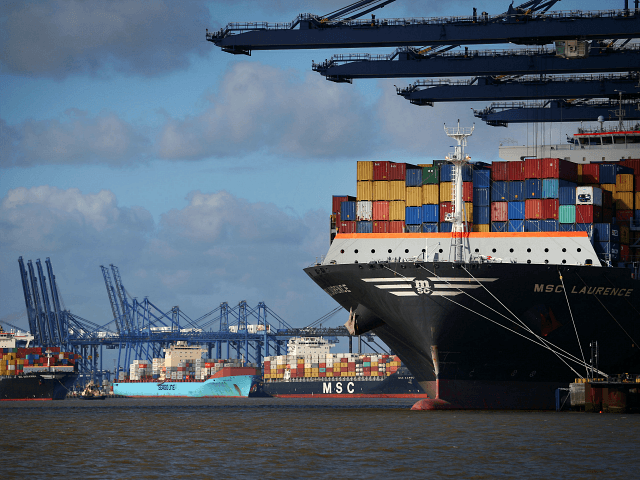The Chief Executive of the United Kingdom Major Ports Group has shot down claims of a six-month “logjam” at Britain’s ports in the event of a “No Deal” Brexit in flames.
Writing to the Telegraph newspaper “on behalf of the United Kingdom’s major port operators, responsible for handling 75 per cent of the country’s seaborne trade”, Tim Morris was highly dismissive of headlines suggesting a clean break with the EU on World Trade Organization (WTO) terms — “No Deal” — would result in trade seizing up.
Morris noted that while the Port of Dover could face certain “risk factors” due to its “unique” circumstances, it only handles 6 percent of British port volumes, and the same issues do not exist at Britain’s other major trade hubs.
“These ports already have the capacity and infrastructure to handle large volumes of both EU and non-EU trade today without ‘logjam’,” he explained.
“The UK’s port sector is resilient, adaptable and highly competitive. We will work through the challenges of Brexit as we have with huge changes through the centuries. Our island nation has always been dependent on sea trade and the ports that enable it.”
The United Kingdom is essentially unique in the European Union in that it already does a majority of its trade outside the EU’s Customs Union, despite Remainer claims that being outside it would see British exporters and importers faced with virtually insurmountable obstacles.
It is possible that the United Kingdom Major Ports Group — which Mr Morris notes is investing “more than half a billion pounds of private-sector funds a year” in its operations, is anticipating the benefits of a genuine Brexit, which could see the country’s global trade supercharged once it reclaims control over international trade policy from Brussels and begins striking new agreements with countries like the United States.
Brexiteer MPs have also noted the potential for the establishment of a series of “free ports” around the United Kingdom after Brexit, which could create tens of thousands of jobs and turn Britain’s coastal communities into real growth engines — especially if coupled with the management of Britain’s national fishing grounds reverting from EU control.

COMMENTS
Please let us know if you're having issues with commenting.